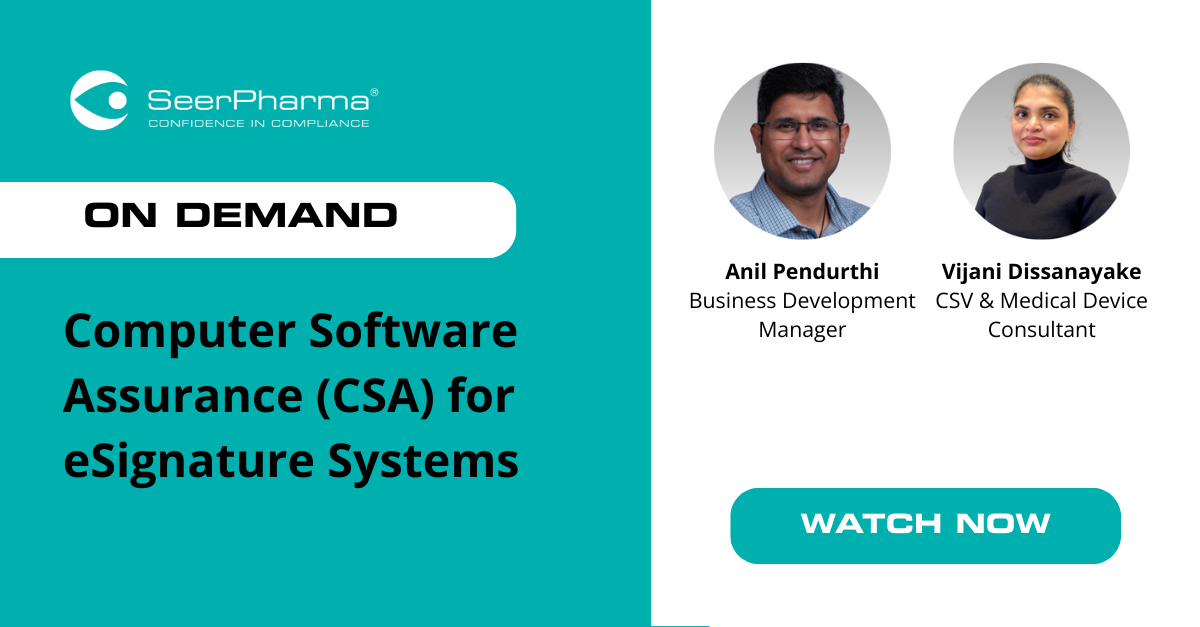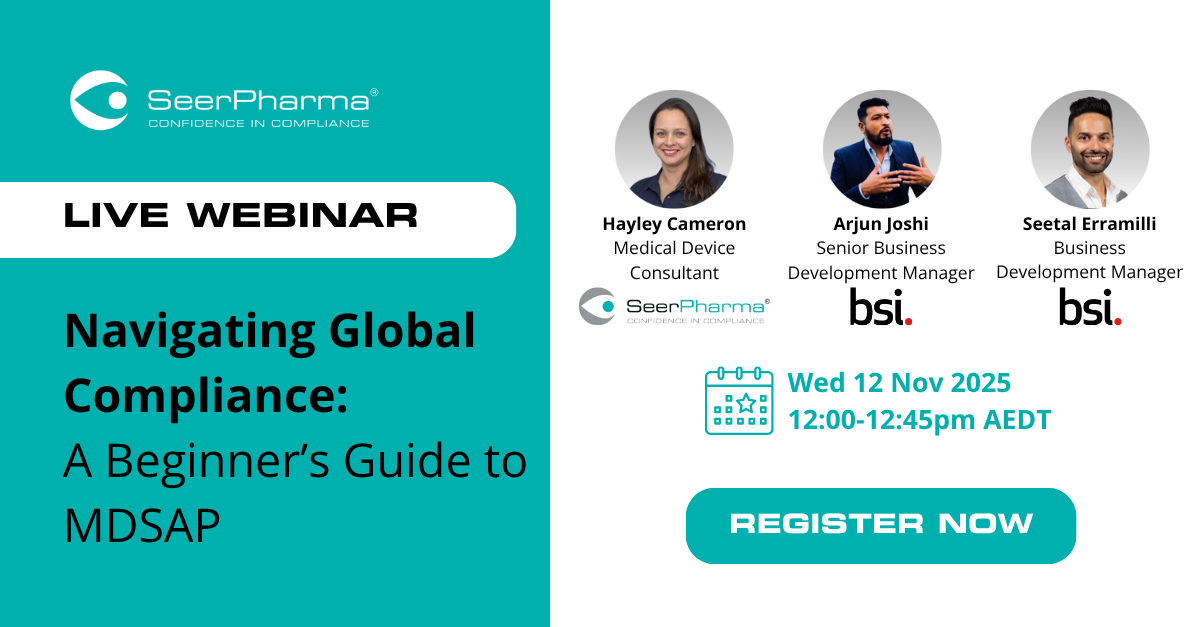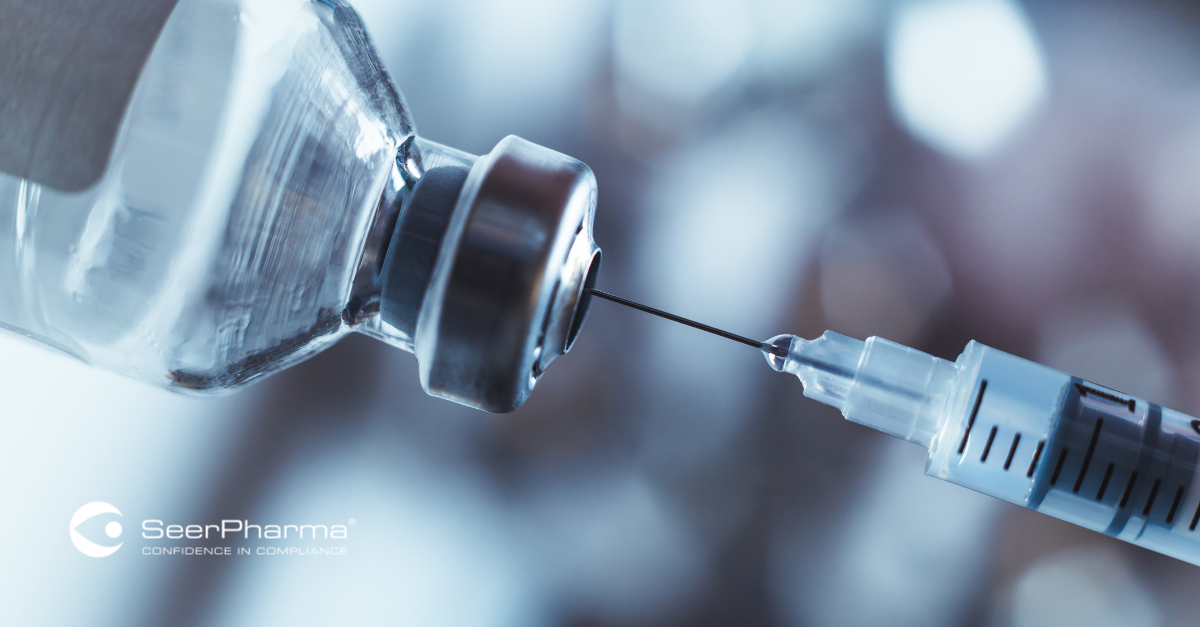Meet Feba Stanly - Master of GMP Student at UTS
Webinar | Computer Software Assurance (CSA) for eSignature Systems
Electronic signatures - once an unfamiliar or unused feature - have now become an essential capability within computerised systems supporting GxP operations across the regulated life-science industry. Today, solutions like Adobe Sign and DocuSign are widely used to route documents and records for review and approvals both within organisations and...
Supporting Early-Stage Companies in Establishing Fit-for-Purpose QMS
For more than 35 years, SeerPharma has been a trusted partner to pharmaceutical and medical device organisations across the Asia-Pacific (APAC) region, providing expert guidance on Quality Management Systems (QMS) and Good Manufacturing Practice (GMP) compliance.
At the heart of our work lies a team of highly experienced quality and regulatory...
Supporting Medical Device Companies with Internal Audits
For more than 35 years, SeerPharma has partnered with organisations involved in the supply, manufacture, and distribution of Medical Devices and In Vitro Diagnostics (IVDs) across the Asia-Pacific region.
Our team supports companies that design, develop, and manufacture medical devices and IVDs across of all classifications, helping ensure their...
Webinar | AI x eQMS: Intelligent Quality Process Automation
Life sciences organisations work across diverse countries, languages, and regulations, where accurate communication is vital for compliance and safety. Traditional translation methods are slow and error-prone, creating barriers to global alignment. MasterControl’s AI-powered eQMS removes these challenges by enabling instant translation, clear...
Webinar | Navigating Global Compliance: A Beginner’s Guide to MDSAP
Entering the medical device industry is an exciting venture—but it comes with a maze of regulatory requirements that can feel overwhelming, especially for startups and new manufacturers. One acronym you’ll encounter early and often is MDSAP: the Medical Device Single Audit Program.
Webinar | Modern Lifecycle Process Validation: Beyond the Trilogy
Process Validation: A Universal Concept in the Regulatory Landscape
Across the pharmaceutical, biopharmaceutical and medical device industries, process validation has historically been structured around the trilogy:
- Process Design: Develop and understand the process based on science, risk, and data (Stage 1)
- Process Qualification: Confirm the...
SeerPharma at PDA APAC Aseptic Manufacturing Conference 2025
The PDA Aseptic Manufacturing Excellence Conference 2025 (13–14 October, Melbourne) will be a premier gathering for professionals shaping the future of aseptic manufacturing. The event will bring together regulators, industry leaders, and innovators to explore how organisations can align with evolving international standards while adopting new...
Master of GMP | Free Online Information Session | 7 Oct 2025
The Master of Good Manufacturing Practice from the University of Technology Sydney is your pathway to an industry-recognised qualification, whether you’re launching your career or stepping into a more senior role.










